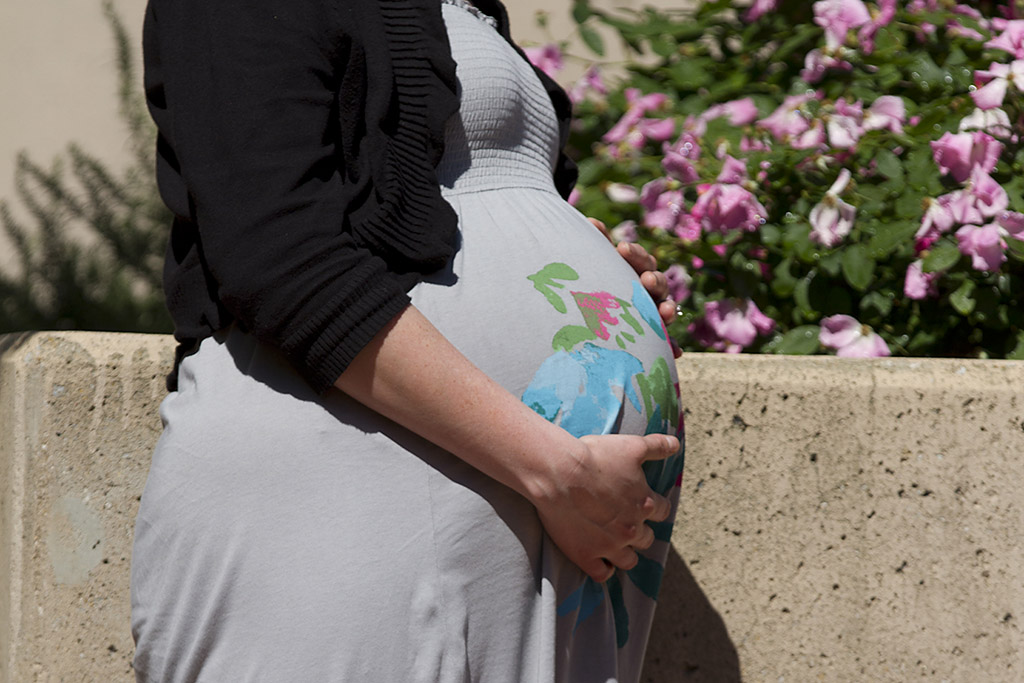Experts are divided after the high court directed a relook at the age ceiling — 55 for men and 50 for women — for availing the technology.

The ART Act prohibits women aged 50 or above and men above 55 from having children using Assisted Reproductive Technology. (Representational pic/Wikimedia Commons)
The Kerala High Court’s directive to relook at the upper-age limit for employing Assisted Reproductive Technology (ART) has evoked a mixed response among gynaecologists and infertility experts.
While a section of gynaecologists and infertility experts agreed that opting for ART is an individual’s personal choice, others felt that raising the age ceiling could create problems for the woman, her pregnancy and the baby.
Kerala High Court judge Justice VG Arun directed the National Assisted Reproductive Technology and Surrogacy Board to alert the Union government on the need for including a transitional provision in the ART Act and also relook at the prescribed upper age limit.
The court issued the directive on 19 December while considering a bunch of petitions that challenged the upper-age limit.
The petitioners argued that the prescription of the upper-age limit under Section 21(G) of the ART Act is irrational, arbitrary, unreasonable and violative of their fundamental right to reproduce.
Justice Arun permitted those petitioners who have availed of ART services as on 25 January 2022 to continue the treatment. The ART Act, introduced on 25 January 2022, capped the upper-age limits for men and women at 55 and 50, respectively.
“In my opinion, the impact of the prescription of the upper-age limit on the liberty of individuals is a matter which the National Board should bring to the notice of the Central Government, so as to effectuate a detailed discussion on the subject and pave the way for necessary amendments,” the court said.
The court also noted that it is the personal choice to begin a family, and the government setting an upper-age limit for the same need a relook.
Infertility experts flagged various flaws in the ART Act. Speaking to South First, Dr Soumya Sangamesh, Consultant Obstetrician, Gynaecologist and Fertility expert at BGS Gleneagles Global Hospital in Bengaluru, suggested considering a scenario.
“What if the man is aged 56 and it is his second marriage with a woman who is aged 40 years? Why can’t she have a child through ART,” she asked.
Pointing out the several technologies currently available to freeze eggs and gametes (reproductive cells), Dr Sangamesh further questioned the age restriction.
“Today, several women marry only at the age of 40 and they might want to become pregnant at the age of 45. They would freeze their eggs at 35 itself. Later, they go for ART. One cannot say you have to stop pursuing this as soon as you turn 50,” she added.
It may be noted that a group of women challenged Section 27 of the ART Act in the Madras High Court in December.
They questioned the age limit set for donors and the mandate — among other things — that an oocyte (an egg before maturation) donor shall donate oocytes only once in her lifetime, and a set of retrieved oocytes should be used only for a single commissioning couple.
The petitioners claimed that most developing countries permit a donor to donate oocytes at least for six cycles in her lifetime, and hence Section 27 breaches a woman’s reproductive autonomy.
Several women have approached courts in various cities, Dr Sangamesh said, adding that there should be a proper relook at this act to bring in the necessary changes.
Some other doctors differed. While agreeing that a woman can choose any age to conceive, the repercussions of conceiving at a later stage of life may be dangerous to her health and also the child’s growth.
Dr Devika Gunasheela, Obstetrician and Gynaecologist at Gunasheela Fertility Centre in Bengaluru concurred that choosing any age to conceive is an individual’s choice. However, she highlighted issues that might crop up while conceiving later.
“The best time to conceive is between 20 and 35 years of age. After 35, the quality of oocytes deteriorates, and the women are more prone to miscarriages and having mentally challenged babies,” she pointed out.
Dr Gunasheela added that as a woman gets older than 45 years, her physiology also changes. Her body will not be equipped to handle pregnancy as she was at a younger age.
“Babies may not attain full growth due to intrauterine restrictions. Additionally, as the age advances, women are more susceptible to diabetes. They may also face postpartum haemorrhage issues. Childcare, too, may become difficult due to other complications,” she added.

Jul 26, 2024

Jul 26, 2024

Jul 26, 2024

Jul 26, 2024

Jul 26, 2024

Jul 26, 2024